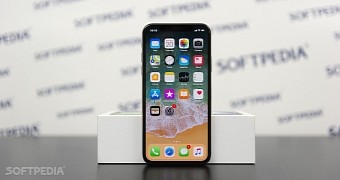The dream of every Windows Phone diehard is about to come true. Rumor has it that Microsoft is now finalizing the Surface Phone ahead of a possible launch later this year.
While this isn’t the first time we hear that Microsoft is getting ready to launch the Surface Phone, let’s look into this speculation and see what it brings new to the table.
As compared to previous rumors which claimed the Surface Phone was supposed to see daylight with Windows 10 Mobile in order to save the platform, now it seems like Microsoft’s plans have changed following the demise of its mobile operating system. The Surface Phone could launch with Windows Polaris, a new project prepared by Microsoft and which was originally expected to debut in 2019.
Windows Polaris is essentially an evolved version of Windows 10 S that would be specifically aimed at users who don’t need Win32 programs. As a result, Polaris would come without the legacy components, and this should help make the operating system more lightweight and faster. On the other hand, for users needing Win32, Polaris would integrate virtualization, technically allowing desktop software with the power of cloud.
Since Windows Polaris was originally scheduled to launch next year, it’s believed the version powering the Surface Phone launching in late 2018 would come without the virtualization features mentioned above. In other words, the Surface Phone would only be able to run Microsoft Store apps and nothing more.
As we’ve seen in so many patents already, the Surface Phone, which some refer to as a “mobile device” because the official moniker is not known just yet, is expected to boast foldable screens connected to each other by a revolutionary hinge. This way, the device would offer more than just a single form factor. It can also be a tablet, and even a small PC, depending on the position and angle of the screens.
“Another compromised device.”
As far as the phone form factor goes, however, a Surface Phone with Windows Polaris would be a rather compromised device.
While running Win32 software in laptop or PC configuration would make sense, not the same thing can be said about phones, where apps in the store would still play the decisive role. And today’s Microsoft Store is certainly not ready for a phone.
Truth be told, this isn’t even the purpose of a Surface Phone. Most likely, Microsoft is aiming for the enterprise and business users with a Surface Phone that offers multiple form factors, but there’s no doubt consumers, and especially hardcore Windows phone fans, will consider buying it as well. And this is where the software side of the phone will show its limits, eventually leading to criticism that the software giant doesn’t really afford.
While Microsoft has the essential app package for a phone, like an email client, a browser, and media players, many of the apps that customers would use on a regular basis are missing. This has actually been one of the main drawbacks of Windows phones, and one of the reasons Windows 10 Mobile eventually failed, and it’s likely to plague the phone side of a Surface Phone as well.
If it launches a Surface Phone, Microsoft’s purpose is not to compete against the iPhone. But it goes without saying that it’d all be just a matter of time until people start comparing it with Apple’s phone.
At this point, the iPhone has what it takes to tackle the majority of industries, including both consumers and enterprise, and Apple’s push has the support of a huge app ecosystem that makes its device the right choice for pretty much any type of user. So even if it lacks the form factors that a potential Surface Phone could bring, the iPhone remains a choice that any potential buyer, consumer or enterprise, would have to consider before making the final decision.
“With Windows Polaris and without apps, it’s just a portable PC.”
Without apps, a Surface Phone is more or less a portable computer. A very innovative portable computer, if the foldable screen design indeed makes it to mass production, but on the other hand, it can’t be a phone per se. Not without app support.
Microsoft has been trying to address the lack of apps with several projects in the last few years, including Centennial, Islandwood, and Astoria, but eventually the company decided to completely abandon phones and focus on devices that bring home the bacon. And this leads me to the one thing I’ll never understand about Microsoft’s mobile strategy.
What’s the reason for giving up on Project Astoria and not bringing Android apps to Windows phones? Microsoft was super-close to adding Android app support on Windows 10 Mobile, and preview builds even included such functionality, but the idea was all of a sudden abandoned shortly after that.
Unfortunately, without app support, I really can’t see any Microsoft phone succeeding. Not even if it’s called the Surface Phone. No matter if it supports one, two, or three form factors. It might be a hit for business users, but it won’t kill the iPhone.

 14 DAY TRIAL //
14 DAY TRIAL //